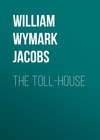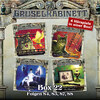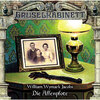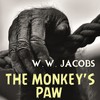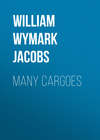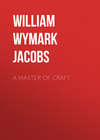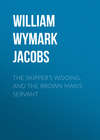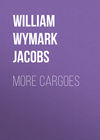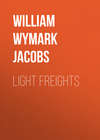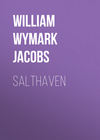Buch lesen: «The Toll-House»
"THE TOLL-HOUSE"
"It's all nonsense," said Jack Barnes. "Of course people have died in the house; people die in every house. As for the noises—wind in the chimney and rats in the wainscot are very convincing to a nervous man. Give me another cup of tea, Meagle."
"Lester and White are first," said Meagle, who was presiding at the tea-table of the Three Feathers Inn. "You've had two."
Lester and White finished their cups with irritating slowness, pausing between sips to sniff the aroma, and to discover the sex and dates of arrival of the "strangers" which floated in some numbers in the beverage. Mr. Meagle served them to the brim, and then, turning to the grimly expectant Mr. Barnes, blandly requested him to ring for hot water.
"We'll try and keep your nerves in their present healthy condition," he remarked. "For my part I have a sort of half-and-half belief in the super-natural."
"All sensible people have," said Lester. "An aunt of mine saw a ghost once."
White nodded.
"I had an uncle that saw one," he said.
"It always is somebody else that sees them," said Barnes.
"Well, there is a house," said Meagle, "a large house at an absurdly low rent, and nobody will take it. It has taken toll of at least one life of every family that has lived there—however short the time—and since it has stood empty caretaker after care-taker has died there. The last caretaker died fifteen years ago."
"Exactly," said Barnes. "Long enough ago for legends to accumulate."
"I'll bet you a sovereign you won't spend the night there alone, for all your talk," said White, suddenly.
"And I," said Lester.
"No," said Barnes slowly. "I don't believe in ghosts nor in any supernatural things whatever; all the same I admit that I should not care to pass a night there alone."
"But why not?" inquired White.
"Wind in the chimney," said Meagle with a grin.
"Rats in the wainscot," chimed in Lester. "As you like," said Barnes coloring.
"Suppose we all go," said Meagle. "Start after supper, and get there about eleven. We have been walking for ten days now without an adventure—except Barnes's discovery that ditchwater smells longest. It will be a novelty, at any rate, and, if we break the spell by all surviving, the grateful owner ought to come down handsome."
"Let's see what the landlord has to say about it first," said Lester. "There is no fun in passing a night in an ordinary empty house. Let us make sure that it is haunted."
He rang the bell, and, sending for the landlord, appealed to him in the name of our common humanity not to let them waste a night watching in a house in which spectres and hobgoblins had no part. The reply was more than reassuring, and the landlord, after describing with considerable art the exact appearance of a head which had been seen hanging out of a window in the moonlight, wound up with a polite but urgent request that they would settle his bill before they went.
"It's all very well for you young gentlemen to have your fun," he said indulgently; "but supposing as how you are all found dead in the morning, what about me? It ain't called the Toll-House for nothing, you know."
"Who died there last?" inquired Barnes, with an air of polite derision.
"A tramp," was the reply. "He went there for the sake of half a crown, and they found him next morning hanging from the balusters, dead."
"Suicide," said Barnes. "Unsound mind."
The landlord nodded. "That's what the jury brought it in," he said slowly; "but his mind was sound enough when he went in there. I'd known him, off and on, for years. I'm a poor man, but I wouldn't spend the night in that house for a hundred pounds."
